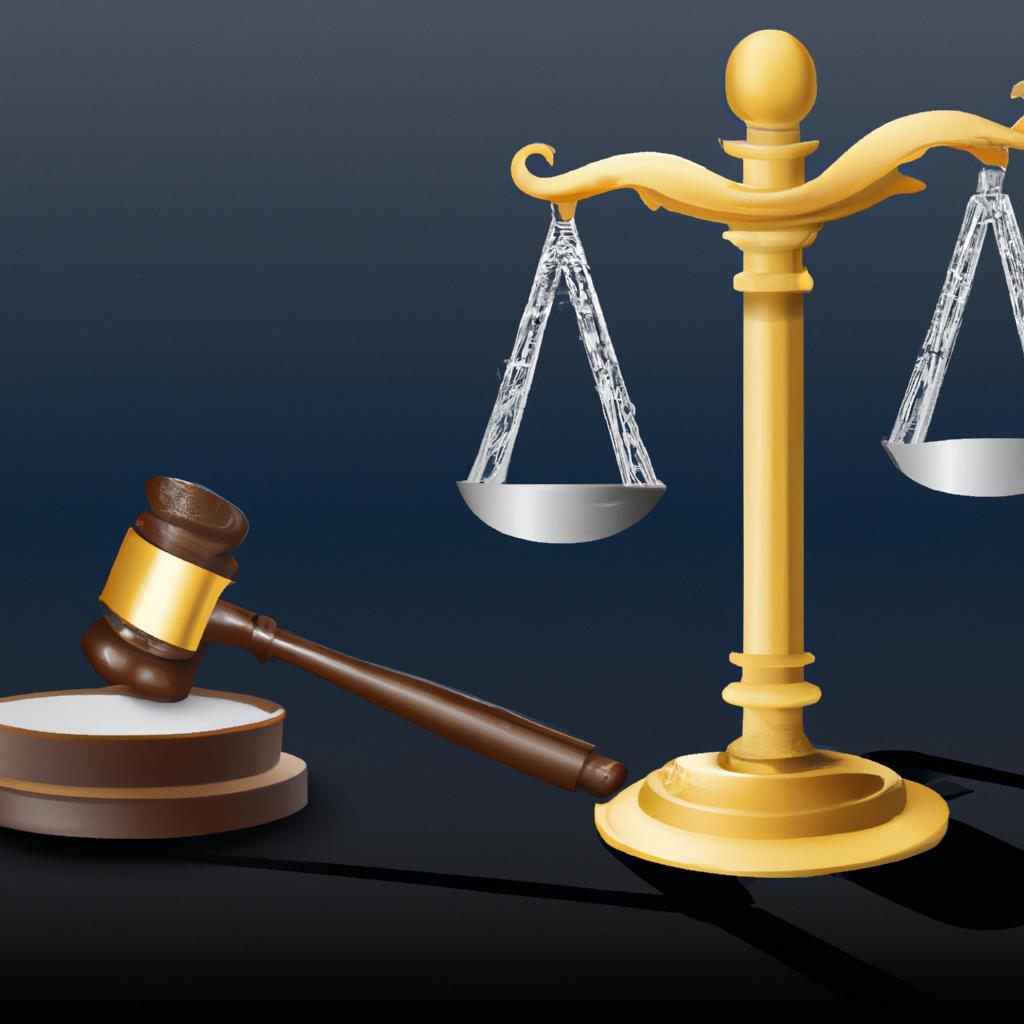As individuals navigate the complex landscape of familial responsibilities and financial obligations, the question of liability for a parent’s debts inevitably arises. In the realm of estate planning and elder law, this question carries weighty consequences and requires a careful analysis of legal principles and precedents. At Morgan Legal Group in New York City, our team of experienced attorneys specializes in addressing intricate issues such as this one. In this article, we will delve into the nuances of familial debt liability and provide clarity on the legal considerations that may impact your financial obligations towards your parents’ debts.
Understanding Filial Responsibility Laws
Filial Responsibility Laws can hold adult children legally responsible for their parents’ debts. This means that if your parent incurs debt, you could be held liable to pay it back. These laws vary by state, with some states having stronger enforcement than others. It is important to understand the laws in your state to know what your obligations may be.
While not all states have Filial Responsibility Laws, it is crucial to be aware of your potential liability. If you are unsure about your obligations, it is best to consult with a legal professional who can help guide you through the complexities of these laws. Taking proactive steps to understand your rights and responsibilities can protect you from unexpected financial burdens in the future.

Determining Your Liability for Your Parents’ Debts
When it comes to , it is essential to understand the laws and regulations in your state. In most cases, children are not responsible for their parents’ debts. However, there are situations where you may be held liable, such as:
- Co-signing a loan or credit card with your parent
- Inheriting the debt through the probate process
- Becoming a joint account holder on a bank account or mortgage
It is crucial to consult with an experienced attorney to assess your potential liability and explore strategies to protect your assets. At Morgan Legal Group, our team of experts can provide guidance and support to ensure that you are well-informed about your legal rights and responsibilities.

Potential Consequences of Not Addressing Your Parents’ Debts
When your parents pass away with outstanding debts, you may be wondering if you are liable for those debts. While you may not inherit your parents’ debts directly, there are potential consequences if you do not address them properly. Here are some scenarios to consider:
- Impact on inheritance: If your parents’ debts are not settled before distributing their assets, creditors may be able to make claims against the estate. This could reduce the amount of inheritance you receive.
- Legal actions: Creditors may take legal actions against the estate or you as the heir to recover the debts owed. Ignoring these claims could result in additional legal fees and stress.
It is essential to consult with an experienced attorney to understand your rights and responsibilities when it comes to your parents’ debts. By addressing these debts properly, you can protect your inheritance and avoid potential legal consequences down the road.

Recommendations for Protecting Yourself from Your Parents’ Debts
When it comes to the question of whether you are liable for your parents’ debts, it’s important to understand the complexities of the law. In general, children are not responsible for their parents’ debts. However, there are circumstances where children may be held accountable for certain debts, such as if they co-signed on a loan or if they are a joint account holder. To protect yourself from being liable for your parents’ debts, consider the following recommendations:
- Review Your Parents’ Financial Situation: Take the time to understand your parents’ financial obligations and debts. This will help you identify any potential issues and take proactive steps to protect yourself.
- Keep Your Finances Separate: Avoid co-mingling your finances with your parents’ finances. Keep separate bank accounts and assets to ensure that you are not inadvertently held responsible for their debts.
Q&A
Q: Are you liable for your parents’ debts?
A: When it comes to financial responsibility, many people wonder if they could be on the hook for their parents’ debts. Let’s delve into this topic to get a clearer understanding.
Q: Can my parents’ creditors come after me for their debts?
A: In general, children are not responsible for their parents’ debts unless they have co-signed on a loan or are a joint account holder. However, laws vary by state so it’s important to consult with a legal professional for specific advice.
Q: What if I am the executor of my parents’ estate?
A: If you are the executor of your parents’ estate, you may have to use their assets to pay off their debts before distributing any inheritance to beneficiaries. Be sure to follow proper legal procedures to avoid any personal liability.
Q: What steps can I take to protect myself from my parents’ debts?
A: To protect yourself from liability for your parents’ debts, it’s important to keep your finances separate from theirs. Avoid co-signing loans or becoming a joint account holder unless you fully understand the implications.
Q: Is there a time limit on when creditors can try to collect from me?
A: Creditors generally have a set amount of time, known as the statute of limitations, to collect a debt. Once this time limit has passed, they can no longer try to collect from you. Again, laws vary by state so it’s important to consult with a legal professional.
Q: What should I do if creditors are trying to collect from me for my parents’ debts?
A: If creditors are trying to collect from you for your parents’ debts, it’s important to seek legal advice. You may need to provide proof that you are not responsible for the debt or take steps to protect your assets.
Remember, when it comes to financial matters involving your parents, it’s always best to seek guidance from a legal professional to ensure you are fully informed of your rights and responsibilities.
To Wrap It Up
In conclusion, the issue of whether or not you are liable for your parents’ debts is a complex and often emotionally charged topic. While the laws vary depending on the specifics of the situation, it is important to seek legal advice if you find yourself in this difficult position. Remember, understanding your rights and responsibilities is crucial in navigating the murky waters of financial obligations. As always, communication and transparency with all parties involved can help alleviate some of the stress and confusion that comes with dealing with debt. Stay informed, stay prepared, and remember that you are not alone in facing these challenges.
 Are You Liable for Your Parents’ Debts?
Are You Liable for Your Parents’ Debts?
As we navigate through life, we often turn to our parents for guidance and support. They are the ones who have raised us, provided for us, and continue to offer their love and advice. However, as our parents age, their financial situation may become a cause for concern. Many children may wonder, “Are we liable for our parents’ debts?” This is a valid question, as it can have a significant impact on our own financial stability. In this article, we will explore the answer to this question and provide valuable insights to help you understand your responsibility towards your parents’ debts.
First, it’s essential to understand the concept of debt liability. Liability refers to being legally responsible for something, in this case, your parents’ debts. The responsibility of debt liability is generally determined by various factors such as state laws, the type of debt, and the relationship between the debtor (your parents) and the potential creditors (their lenders).
Let’s take a closer look at the different types of debt and how liability can be affected by them.
1. Joint Debts:
One of the most common types of debt that parents can have is a joint debt. Joint debts are loans, credit cards, or mortgages taken out by two or more people. In this case, both parties are considered equally liable for the debt. If your parents have a joint debt, it’s crucial to know that it can impact your financial responsibilities. If one of your parents passes away or becomes unable to pay the debt, the responsibility of repaying the debt falls upon the surviving co-signer, which could be you.
2. Inherited Debts:
Inheriting a debt from your parents can be a complicated and emotionally charged situation. Typically, a deceased person’s assets, including debts, are taken care of through the probate process. During this process, creditors have a legal right to make a claim against their deceased debtor’s estate. However, as an heir, you are not personally responsible for these debts, which means you are not liable for repaying them. In some exceptional cases, if an heir has co-signed a loan or is a joint account holder, they may be held responsible.
3. Medical Debts:
Medical debts are another common concern for adult children. With the rising costs of healthcare, it’s not uncommon for parents to incur substantial medical bills. If your parents pass away with unpaid medical debts, the debt will become a liability of their estate. The creditors may make claims against the estate, and if there are enough assets, they will be repaid. However, if the estate has no assets, the creditors may have to write off the debt, and you are not legally liable to repay it.
4. Parent PLUS Loans:
Many parents take out Parent PLUS loans to help their children finance their education. These loans are federal loans taken out by parents to pay for their child’s education. The borrower (the parent) is responsible for repaying the loan, and the child is not legally responsible. However, if your parents are unable to repay the loan, you will be indirectly impacted as your parents’ credit score and financial stability can be negatively affected.
5. Credit Card Debt:
If your parents pass away with credit card debt, the debt will be taken care of through the probate process. If you are not a co-signer or an authorized user of the credit card, you are not responsible for repaying the debt. However, in some states, children may be held liable if they live in a state with community property laws or inheritance laws that allow creditors to go after the deceased’s family members.
It’s important to note that the laws and regulations regarding debt liability can vary from state to state. Therefore, it’s crucial to educate yourself on the laws in your state to understand your responsibility better.
Practical Tips:
1. Have a conversation with your parents about their financial situation and debts. This will help you understand their debts, how they are managing them, and if there are any areas of concern.
2. Consider seeking professional advice. If you are unsure about your parents’ debts or liability, it’s wise to consult a financial advisor or an estate planning attorney who can guide you through the process.
3. Help your parents create a budget and find ways to reduce their debts. You may be able to negotiate with the creditors on their behalf to lower the interest rates or create a more manageable payment plan.
4. If you decide to help your parents financially, make sure to document all transactions and payments. This will avoid any confusion or miscommunication in the future.
In conclusion, the general answer to the question, “Are you liable for your parents’ debts?” is no. However, certain situations and state laws may put you at risk for assuming your parents’ debt. As a responsible adult child, it’s essential to have open and honest communication with your parents about their debts and seek professional guidance when needed. By understanding the types of debts and the laws in your state, you can better prepare and protect yourself and your parents from any potential financial burden.






